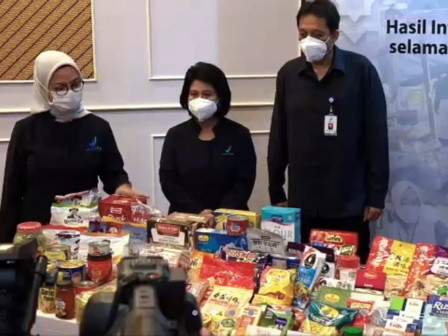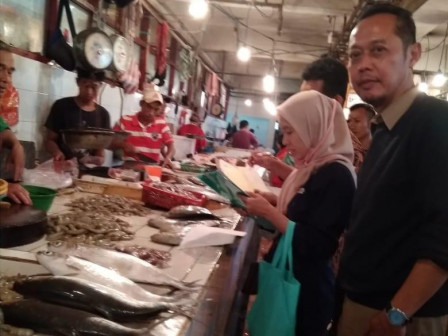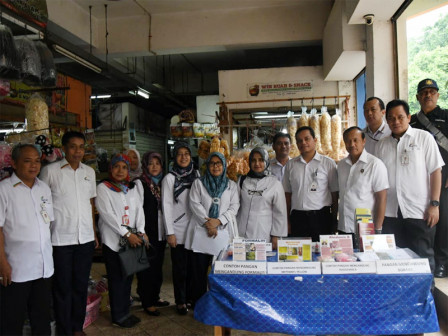41,709 Products Netted for Ramadan Food Control
Reported by Budhi Firmansyah Surapati | Translated by Nugroho Adibrata
Food control during Ramadan and ahead of Eid al-Fitr 1443 Hijri in Indonesia has succeeded in taking action against 41,709 products from 601 points of distribution facilities. These products are expired, broken, and do not meet marketing authorization.
We call on residents to be smarter by checking packaging, labels, distribution, and expiration permits before buying or consuming processed food
Food and Drug Administration Agency (BPOM) Head Penny K Lukito disclosed that the products did not meet the conditions that were netted in this year's inspection worth Rp 470 million. It was less than last year with a total of 125,231 products netted under inspection.
"This action certainly involves cross-sectoral joint efforts, through communication, information, and education, School Snack Food Program, Community-Based Safe Market Program, as well as assistance to business actors in production and distribution facilities," he expressed, Monday (4/25).
Food Inspection Held in Four Traditional Markets in South JakartaAccording to him, the food control had been intensified since March 28 and would be continued until May 6, 2022. Overall, as many as 1,899 circulation facilities were inspected.
Of 1,899 circulation facilities, 601 or 31.65 percent of them were found selling food products that did not meet the provisions as without a distribution permit, expired, and broken. In detail, they consisted of 576 retail outlets, 22 distributors, two e-commerce warehouses, and one importer.
Aside that, the BPOM also supervised iftar snacks that could potentially contain ingredients that are prohibited from being used in food at takjil sales centers through rapid sampling and testing.
Then ingredients that are prohibited from being used in the food in question are formalin, borax, and coloring substances that are prohibited for food (Rhodamine B and Methanyl Yellow).
On the other hand, supervision results in 2022 showed that of the 7,200 samples examined, 109 samples (1.51 percent) contained ingredients that were prohibited from being used in food (Formalin (0.72 percent), Rhodamin B (0.45 percent), and Borax (0.34 percent). As a result, the officers found no abuse of Methanyl Yellow in the food examined.
"So, we call on residents to be smarter by checking packaging, labels, distribution, and expiration permits before buying or consuming processed food," he stated.





